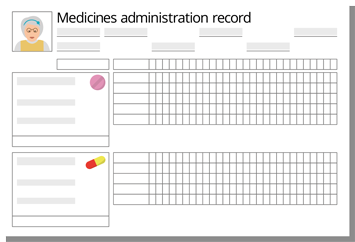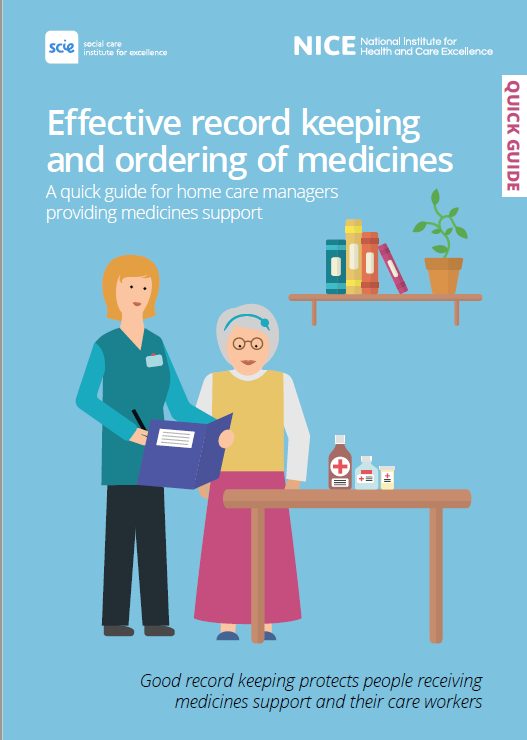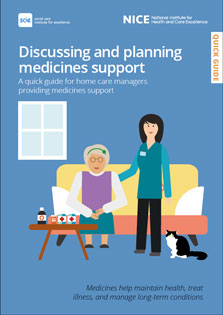Adults may need support to manage their medicines safely and effectively, and for some people this will be provided as part of a home care service.
When medicines support starts, tell the person’s GP and pharmacy, and give them details of who to get in touch with about the medicines. This may be the person themselves or a named contact.
Good record keeping protects people receiving medicines support and their care workers.
Make sure there is a medicines policy in place, including processes for two important aspects of managing medicines:
For each medicine, on each occasion, care workers must record the support they give, including for any over-the-counter medicines. Support might include:
![]()
Reminding the person to take their medicine.

Giving the person their medicine.
![]()
Recording whether the person has taken or declined their medicine.
Any support given should be recorded on a medicines administration record (MAR). The MAR will preferably be a printed record provided by the pharmacist, doctor or home care provider and should include:
If a family member or carer gives medicines support that is usually provided by home care staff, agree with the person and their family how to record this.
Home care services must also have clear processes for recording any changes to a person’s medicines or any medicines-related problems.

Medicines are usually ordered by the person and their family, but occasionally it may be agreed that the home care provider will do it. If so, the provider must ensure that the correct amounts of the medicines are available when they are needed.
Care workers involved in ordering medicines need to be trained and assessed as competent to do so. Make sure they understand that it is important to have enough time to:
Care workers must also know what to do if they identify any differences between the medicines ordered and those received – for example, check with the GP or pharmacist.

Providing medicines support may involve managing any over-the-counter medicines requested by the person, including herbal medicines and vitamins. There should be clear processes in place to ensure that care workers:

Seek advice from a pharmacist or other health professional when needed.

Check the person understands and accepts any risk linked to the medicine.
 pharmacist taking notes cartoon" width="" height="" />
pharmacist taking notes cartoon" width="" height="" />
Know what information should be recorded about the medicine. This may include the name, strength and quantity.
If a home care service is supporting a person to manage their medicines, the pharmacist or dispensing doctor should:


We've created a copy of this guide that you can print and share:

NICE quick guide for home care managers providing medicines support.
This content has been co-produced by NICE and the Social Care Institute for Excellence (SCIE). It is based on NICE’s guideline on effective record keeping and ordering of medicines.